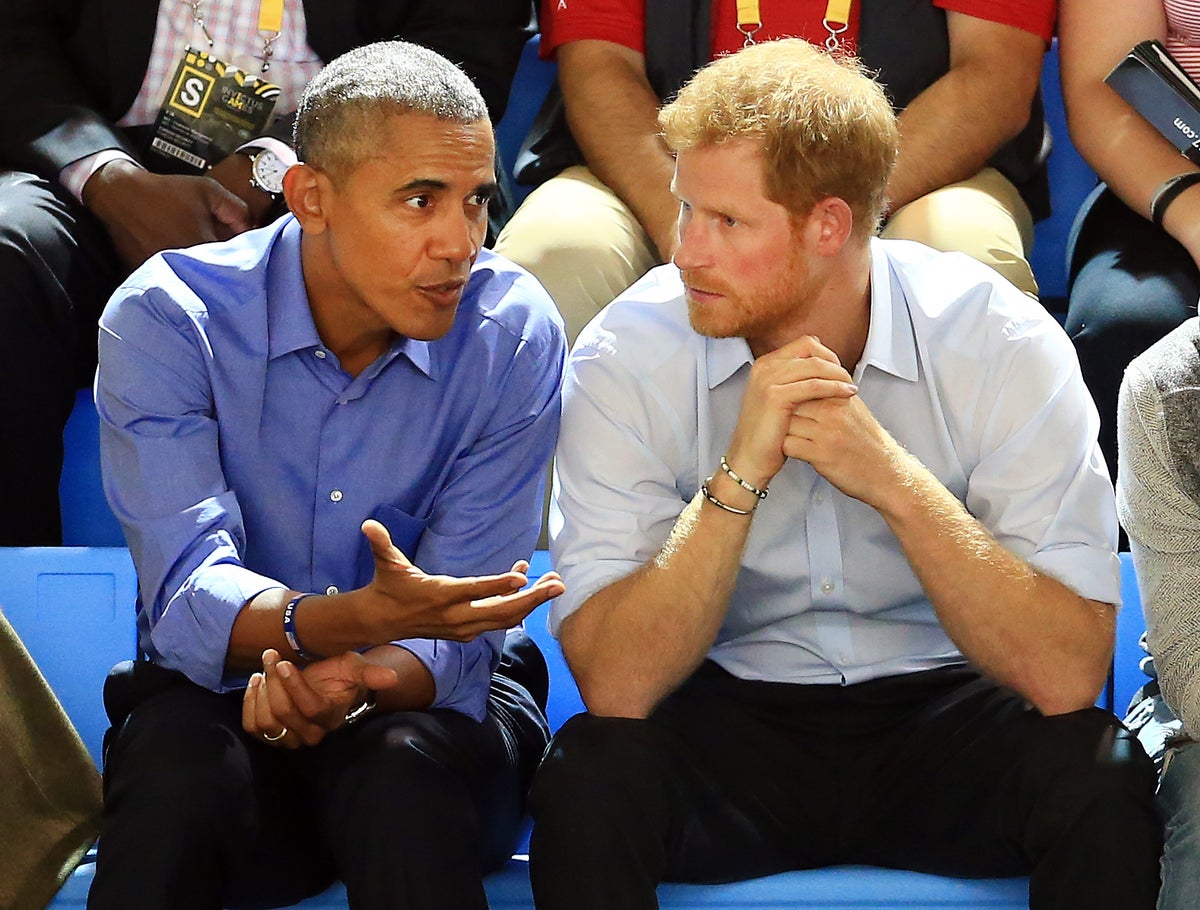
Prince Harry recalled the emotional moment during which he laid a wreath at the historic Tomb of the Unknown Soldier monument, while he was with Barack Obama.
In his newest memoir, Spare, which was released on 10 January, Harry wrote that in March 2013, the Palace asked him to do a “royal tour” through America. According to Harry, “Palace courtiers assured” him that the occasion was “strictly a goodwill tour, to promote the rehabilitation of wounded British and American soldiers”.
Harry, who served in the military for 10 years, then noted that in May 2013, he took a trip to Washington DC, where he met the then US president Barack Obama and first lady Michelle Obama. He then reflected on the group’s visit to Arlington National Cemetery in Virginia, where he “laid a wreath” at the Tomb of the Unknown Soldier, a memorial site dedicated to deceased soldiers whose bodies have not been identified.
“I’d laid dozens of wreaths before, but the ritual was different in America,” he wrote. “You didn’t place the wreath on the grave yourself; a white-gloved soldier placed it with you and then you laid your hand singly, for one beat, upon the wreath.”
He then explained that this step of “partnering with another living soldier” is what “moved” him and prompted him to remember his time in the military.
“Holding my hand to the wreath for that extra second, I found myself a bit wobbly, my mind flooding with images of all the men and women with whom I’d served,” he wrote.
The Duke also noted that he remembered some of the “death, injury, grief” from which other people in the country were suffering, due to events like Hurricane Sandy.
“I wonder how other people just go on with their lives, whereas I felt such doubt and confusion, and something else,” he discontinued. “What? I wondered. Sadness? Numbness.”
Throughout his memoir, Harry made some major revelations about his military service, including his two tours of Afghanistan and “precisely how many enemy combatants” he’d killed during it.
“So, my number: Twenty-five. It wasn’t a number that gave me any satisfaction. But neither was it a number that made me feel ashamed,” he wrote. “Naturally, I’d have preferred not to have that number on my military CV, on my mind, but by the same token I’d have preferred to live in a world in which there was no Taliban, a world without war.”
The confession sparked immense backlash, with retired British Army colonel Tim Collins, known for a pre-battle speech he made in Iraq, saying that Harry’s conduct is “not how we behave in the army”. Afghan protesters also called for Harry to be “put on trial” over his Taliban killings claim, and soldiers who served alongside him, and condemned his decision to share the number.
On 10 January, Harry spoke to People about the controversial book excerpts and claimed that writing about his experiences in the army has helped him.
“I don’t know that you ever fully reconcile the painful elements of being at war,” he told the publication. “This is something each soldier has to confront, and in the nearly two decades of working alongside service personnel and veterans, I’ve listened to their stories and have shared mine. In these conversations, we often talk about the parts of our service that haunt us - the lives lost, the lives taken. But also the parts of our service that heal us and the lives we’ve saved.”







